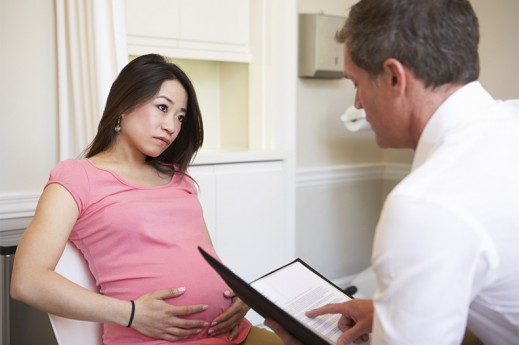Aspirin, a common pain reliever for fever and aches, is generally not recommended for pregnant women. Some women with pre-existing health conditions, however, may continue taking aspirin when they’re expecting.
In any case, you should contact your health care provider before taking aspirin while pregnant.
Never Miss a Beat!
Subscribe to Our HealthBeat Newsletter!
Thank you for subscribing!
You can now select the specific newsletters you'd like to receive.
You are already subscribed.
Subscribe to more newsletters in our email preference center.
Sorry, an error occurred. Please try again later.
Get Healthy Tips Sent to Your Phone!
Why Pregnant Women Should Avoid Aspirin
Aspirin is a natural blood thinner that can interfere with your child’s healthy development. However, if you are already taking aspirin for a medical condition, do not discontinue taking it until you speak with your doctor.
Taking aspirin mainly during the first trimester and last trimester may cause the following:
- An increased risk of miscarriage
- A possible placental disruption
- Delayed labor
- Increased risk of heart and lung problems

Exceptions to the Aspirin Rule for Expecting Women
Your health care provider may decide that you need to take a low dosage of aspirin (such as baby aspirin) if you fall into one of these categories:
- High risk of preeclampsia
- Chronic high blood pressure
- Diabetes
- Over 35 years of age
- Kidney disease
- Issues with blood clots, such as Hughes Syndrome
In these cases the physician will determine the risks, and decide what the best case scenario is for you and your baby.
Are there aspirin alternatives?
You can take acetaminophen as an alternative unless you have an allergy to it. Check the labels, talk to the pharmacist, and/or your provider before taking over-the-counter drugs. Some medications will have trace amounts of aspirin, ibuprofen, or non-steroidal anti-inflammatory drugs (NSAIDs), which are also off-limits for expecting women.
Talk to your health care provider
Pregnant women should always discuss their medications and medical history with their doctor. Avoid aspirin or ibuprofen if you have not yet consulted with your doctor. As a general rule, expecting women should avoid any over-the-counter drugs unless they’ve received their doctor’s approval.
About UPMC Magee-Womens
Built upon our flagship, UPMC Magee-Womens Hospital in Pittsburgh, and its century-plus history of providing high-quality medical care for people at all stages of life, UPMC Magee-Womens is nationally renowned for its outstanding care for women and their families.
Our Magee-Womens network – from women’s imaging centers and specialty care to outpatient and hospital-based services – provides care throughout Pennsylvania, so the help you need is always close to home. More than 25,000 babies are born at our network hospitals each year, with 10,000 of those babies born at UPMC Magee in Pittsburgh, home to one of the largest NICUs in the country. The Department of Health and Human Services recognizes Magee in Pittsburgh as a National Center of Excellence in Women’s Health; U.S. News & World Report ranks Magee nationally in gynecology. The Magee-Womens Research Institute was the first and is the largest research institute in the U.S. devoted exclusively to women’s health and reproductive biology, with locations in Pittsburgh and Erie.
